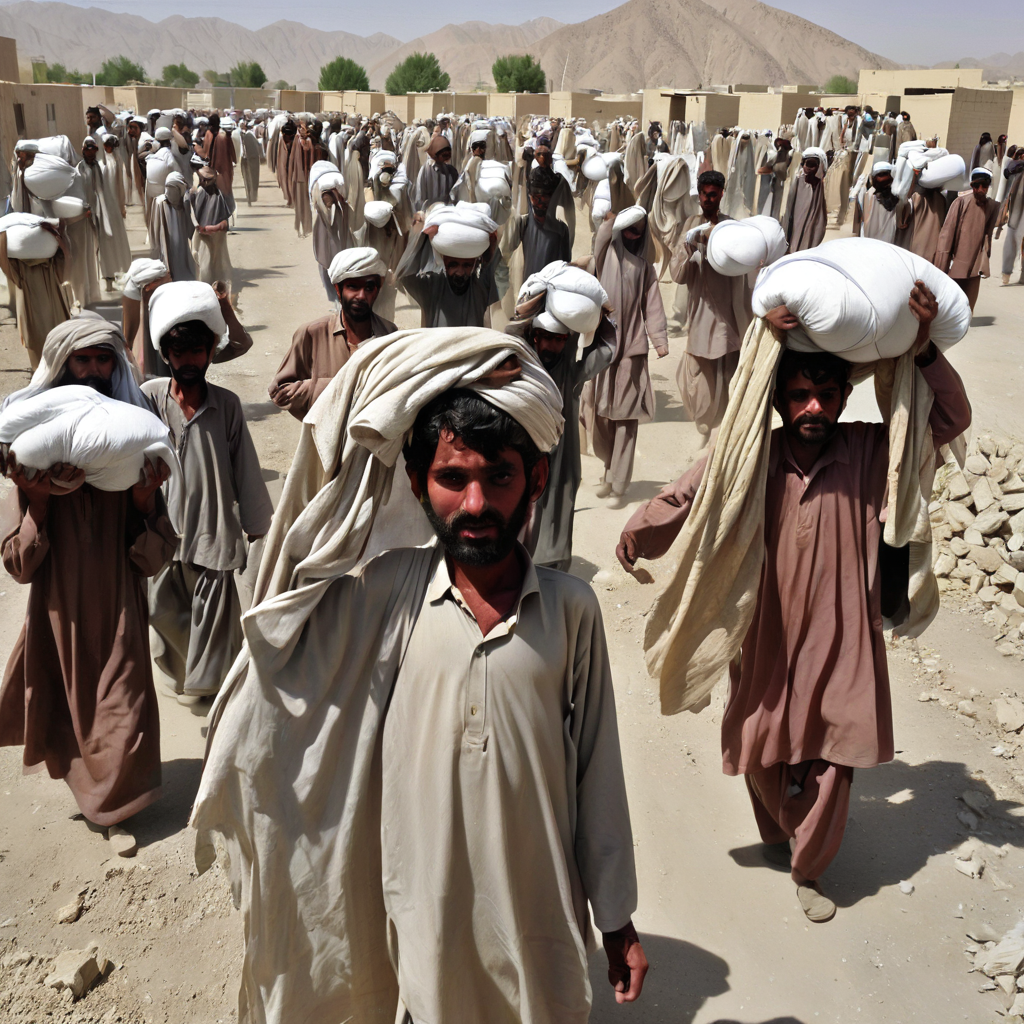ILO and Partners Pledge Support for Palestinian Labour Market Recovery Amidst Gaza Crisis

On Monday, June 10, International Labour Organization (ILO) and its development partners reaffirmed their commitment to bolstering the resilience and recovery of the Palestinian labour market. This pledge was made during a meeting held on the sidelines of the International Labour Conference (ILC).
The partners committed financial and other forms of support for the ILO’s initiatives in response to the ongoing war in Gaza and the severe social and economic crisis it has caused throughout the Occupied Palestinian Territory (OPT).
The ILO’s response strategy revolves around three key pillars: providing immediate relief, assessing the war's impact on the labour market, and fostering early recovery. This approach aligns with the humanitarian-development-peace nexus and complements the broader context of the United Nations' relief and early recovery programs.
ILO Director-General, Gilbert F. Houngbo, emphasized the urgent need for a labour market response to support Palestinian workers and employers alongside the humanitarian efforts. "It's crucial to lay the groundwork for a prosperous and inclusive recovery now, despite the many immediate needs. Priming the labour market to support and sustain a strong recovery will be essential," Houngbo stated.
Houngbo highlighted the importance of job creation, social protection, and business restoration as vital elements of the immediate recovery efforts. He also stressed that the ILO’s unique position, which unites governments, employers, and workers, makes it well-suited to address the labour market crisis in the OPT.
Sigrid Kaag, the UN’s Senior Humanitarian and Reconstruction Coordinator for Gaza, and Muhannad Hadi, the UN Resident Coordinator for the Middle East Peace Process, echoed the significance of decent work, jobs, and income in the wider UN response to the OPT crisis.
At the meeting, development partners expressed their commitment to the ILO’s $20 million appeal for the recovery pillar of the plan. This pillar aims to create jobs through labour-intensive projects to repair infrastructure and restore basic services, implement social protection measures including unemployment benefits, and support the most vulnerable populations. It also focuses on restoring businesses and facilitating access to markets and finance.
Belgium and Kuwait, who co-convened the meeting with the ILO Director-General, along with Indonesia, the Netherlands, and Qatar, announced contributions totaling over $8 million. Many other partners also pledged forthcoming support.
Marc Pecsteen de Buytswerve, Belgium’s Ambassador and Permanent Representative to the United Nations Office at Geneva, stated, "Decent work for all is a key priority for Belgium. We appreciate the ILO’s efforts in uniting us to contribute towards job creation and early recovery in the OPT. Belgium has contributed €1 million to the ILO and looks forward to closer collaboration to address the region’s challenges."
Kuwait’s Ambassador and Permanent Representative to the United Nations Office at Geneva, Naser Abdullah H. M. Alahayen, remarked, "Today's meeting was a crucial step towards addressing the urgent needs in Palestine. Kuwait stands in solidarity with the people of Palestine and is committed to providing necessary humanitarian support for an effective emergency response."
Paul Bekkers, the Netherlands' Ambassador and Permanent Representative to the United Nations Office in Geneva, announced, "The Netherlands is contributing $4.3 million to the ILO's Emergency Response Plan for the West Bank and Gaza, aiming to support early economic recovery and alleviate suffering. Together, we can make a meaningful impact."
Eight months of war in Gaza have severely impacted the labour market and economy in both the Gaza Strip and West Bank. According to recent ILO and Palestinian Central Bureau of Statistics (PCBS) figures, unemployment has soared to over 79% in Gaza and 32% in the West Bank, with GDP shrinking by 83.5% in Gaza and 22.7% in the West Bank.
Through its Emergency Response Plan, the ILO has already supported more than 9,000 Palestinian workers from Gaza who were stranded in the West Bank after losing their jobs in Israel, and facilitated the transportation of 130 containers, owned by businesses in Gaza, to the West Bank. The ILO has also partnered with PCBS to collect and analyze vital data on the war's impact on the Palestinian labour market and economy. Additionally, the ILO has collaborated with the United Nations Development Programme to pilot an emergency employment program in Gaza, providing decent jobs to Palestinian women and men in the health sector and solid waste management. 4o










